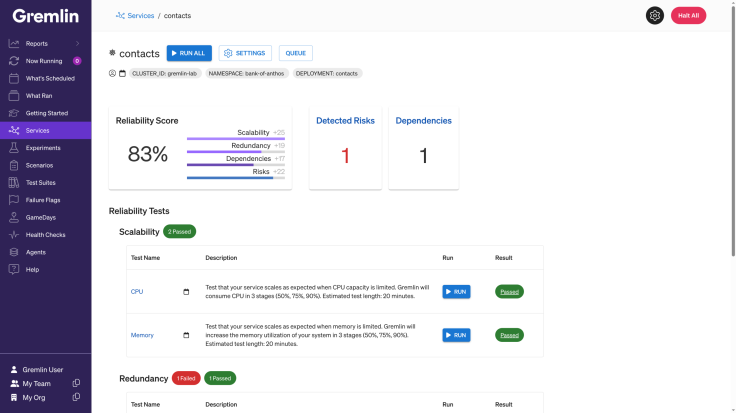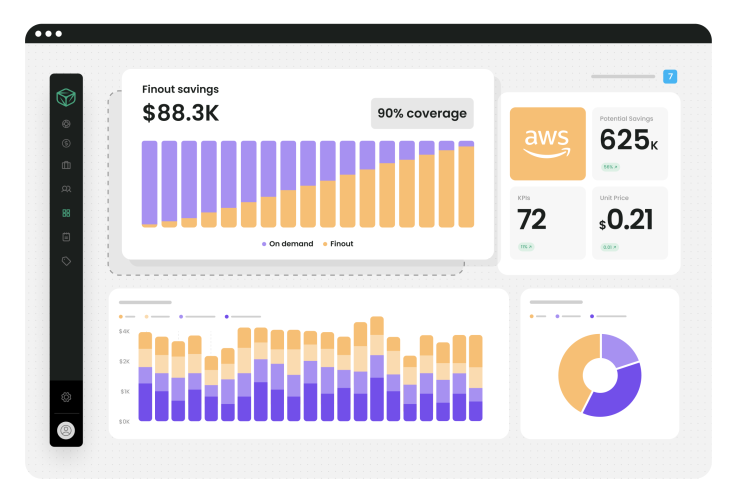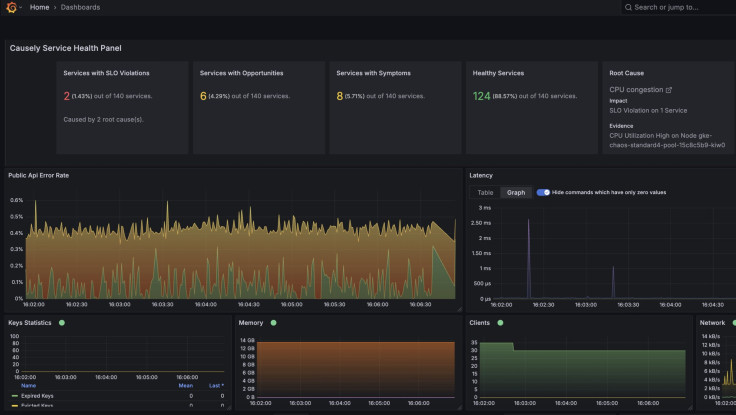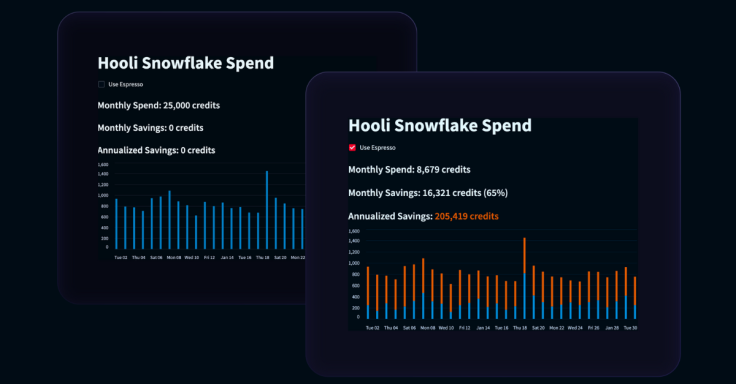4 Modern IT Startups on the Rise in 2025
Several sectors are seeing a surge in promising startups in 2025, including AI, healthcare, fintech, and sustainable energy. In the world of software, we're seeing coding copilots like Cursor and trends like vibe coding take off and increase code velocity by upwards of 70%, according to the latest DORA report.
So what does this mean for modern engineering teams that are responsible for the uptime and performance of these AI-driven applications? For managing and maintaining their costs?
AI is moving at speeds no one could have anticipated, leaving the platform and engineering teams on the reactive. Below, we highlight 4 startups that are growing fast, improving reliability, providing AI guardrails, and keeping costs in check:
Gremlin

We anticipate 2025 to be a big year for Gremlin. They burst onto the scene in late 2017, pioneering the cutting-edge discipline of Chaos Engineering, which involves running attacks and experiments on your own online systems in order to identify the weaknesses. As a practice, Chaos Engineering was embraced internally at places like Netflix and Amazon, and so it's not a surprise that Gremlin CEO and Founder Kolton Andrus is an alumnus from both of these companies.
Being early to market, Gremlin decided to hyper-focus on product over the past few years, building out world-class enterprise features that enable modern teams to get the most out of their proactive reliability efforts. They've built out reliability scoring, intelligent health checks, dependency discovery, and executive reporting in order to ensure enterprises can run experiments safely and validate their efforts.
With AI on the rise and off the leash, it's essential that modern engineering teams have the tools to safely run experiments and ensure that AI-driven development doesn't mean a sacrifice in reliability and performance.
Finout

Finout has quickly become a preferred financial operations management solution for modern teams looking to track and optimize the costs of their spending.
The Finout platform consolidates all of your cloud expenses across the major cloud providers and 3rd party SaaS services into one, centralized dashboard. Whether your company runs on AWS or Azure, whether it uses Datadog or Snowflake, the Finout platform offers native integrations to quickly consolidate and then visualize your spending data, and then analyze it with their unique virtual tagging.
Finout is also the only solution on this list that does not charge users for their cost optimization service. This means that any money saved on AWS, generated by Finout's solution, is money that stays with the customer.
Causely

Causely is a new player on the observability scene. The main problem their platform addresses is that modern teams are drowning in too many alerts and too much data coming from multiple observability solutions across open-source and 3rd party vendors. Their causal reasoning platform automatically pinpoints root causes in the endless sea of observability data, helping engineers avoid unnecessary manual effort.
The company recently announced support for Grafana, so that engineers can instantly see the "why" behind performance issues in the context of their services, significantly cutting resolution time when there's an alert that needs to be addressed. Causely also plugs into Grafana Alertmanager, enriching existing alerts with real-time, continuously-updated root-cause intelligence. This AI-powered capability goes beyond sending alerts when something is wrong, getting deeper into where the problem originated and what to do next within the incident response workflow.
The company has teased a future that removes humans from the loop and involves more automation when it comes to IT management. It's promising to see startups on the operations side coming up with creative and efficient solutions that keep pace with the pace of AI-driven development.
Espresso AI

Espresso AI launched in the summer of last year with $11Million in funding and a straightforward message: users can save up to 70% on their Snowflake bill with some help from AI. The CEO, Ben Lerner, worked on Google DeepMind, which is made up of scientists, engineers, ethicists, and more working to build the next generation of AI systems safely and responsibly.
Their solution leverages advanced language models (LLMs) and machine learning algorithms to optimize code and reduce cloud compute costs automatically. According to the company, Espresso AI is like Kubernetes for Snowflake, where they can intelligently route queries across warehouses to increase utilization and cut costs.
"Snowflake alone has $2 billion in annual revenue. If you look across data warehousing broadly, it's certainly hundreds of millions of dollars in revenue for us, and billions in potential savings for customers," said Lerner when the company launched in 2024.
The software vendors that perform the best in this market are the ones that avoid selling hype and provide real value for their customers. In a sea of software, it can be hard for businesses to know what solutions to leverage and how to keep up. We believe these are four solutions worth considering seriously.
© Copyright IBTimes 2025. All rights reserved.





















